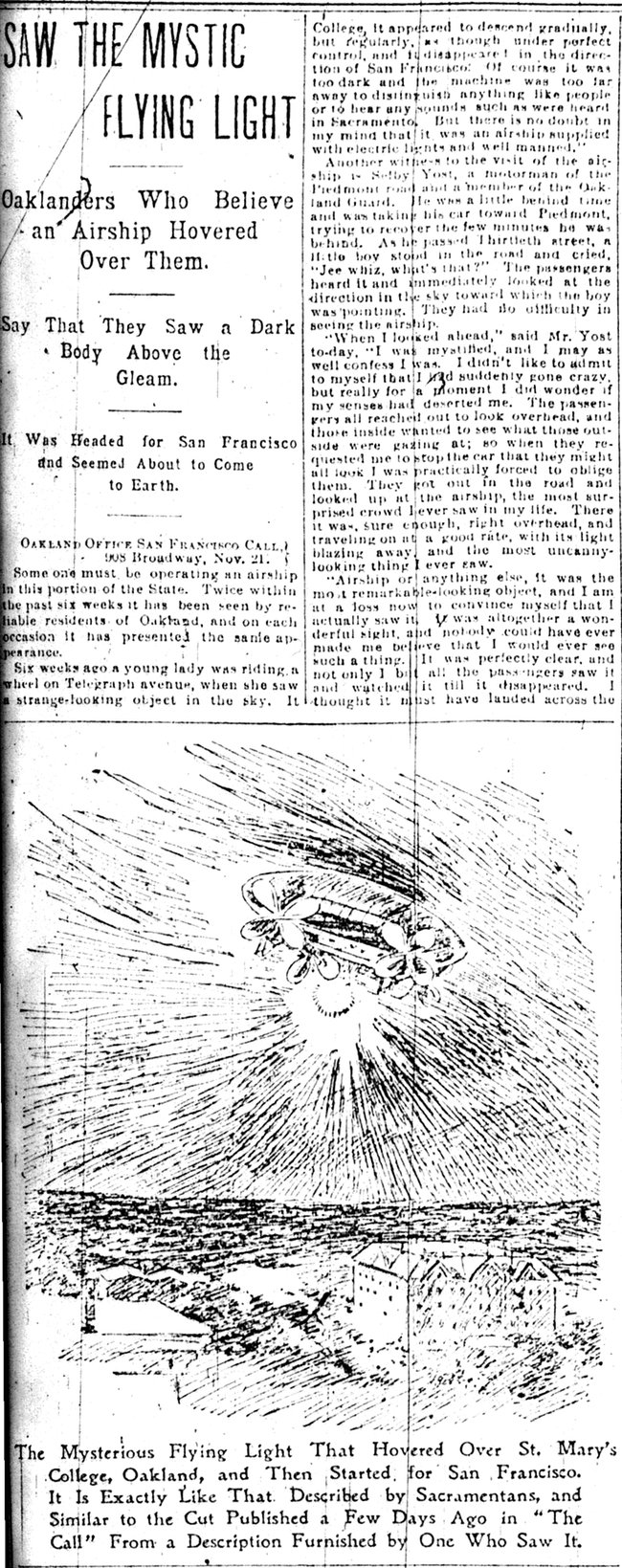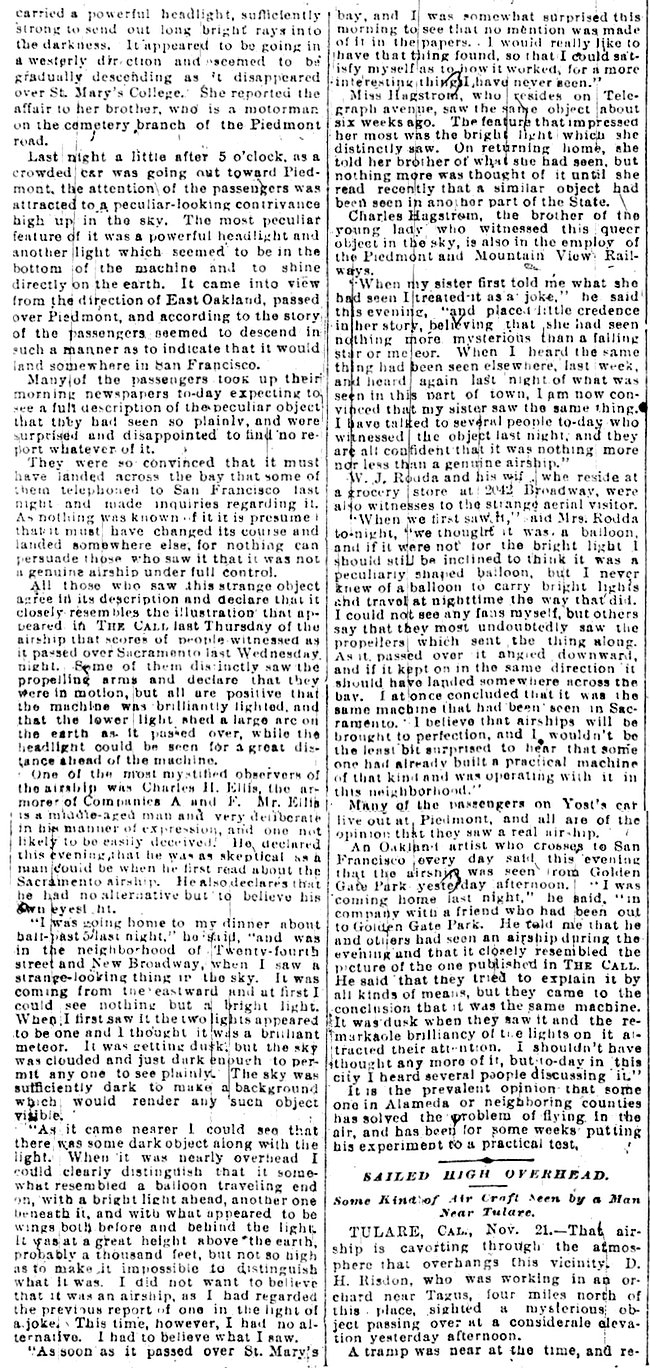- Comment
From Ted Twietmeyer
tedtw@frontiernet.net
3-24-5
-
- This supposedly took place in the horse and buggy era.
Yet there are numerous references to automobiles in the article. Terminology
used is more like 20th century, than 19th.
-
- 1. On the first page, right column is the statement "...requested
me to stop the car..."
-
- 2. Also in the right column, first page "Yost, a
motorman..." Motorman was a term for early car drivers.
-
- 3. The separated heading shows the date Nov 22. The article
shows Nov. 21.
-
- 4. Left column, second page: "The most peculiar
feature was a powerful headlight..." and "a crowded car"
-
Comment
dan_schmidt@adp.com
- 3-24-5
-
- I would like to elaborate on Ted's comments.
-
- 1. "requested me to stop the car". The word
car applies to many forms of transportation. Trains have cars, there are
cable cars, and trolley cars. Electric vehicles were in existence before
internal combustion powered vehicles. I don't know if Oakland had electric
buses at the time, but that could explain the word car.
-
- 2. "Yost, a motorman..." Notice the sentence
says, "Yost, a motorman of the Piedmont road..." The article
mentions passengers, and being behind time. To me that implies a professional
driver on a route. The term motorman was and still is used for drivers
of cable cars in SF. Again, I don't know when the first cable cars started
running, but these are some facts that should be checked.
-
- 3. Since the heading is separated, there isn't much to
go on. Did this particular paper print both a Saturday and Sunday edition?
Perhaps the story was written or submitted on Sat 21 for the Sun 22 edition.
I don't think the date has much meaning.
-
- 4. The words headlight and car. Headlight could have
been in usage from trains. What else would you call a light on the front?
And what would you call a people container hanging from an airship, if
you were alive in 1896? We use the word cabin to descibe the passenger
compartment of an aircraft. What would someone from 1896 think of that?
-
- I just thought that I should point out that there are
multiple interpretations of almost anything. None of this changes the entertainment
value of the article. I think this article is no different than the current
tabloids. When you see a headline that reads, "Woman Gives Birth to
Two-Headed Alien Baby", you don't consider it a news report, or even
a hoax. It's a fictional story with an entertainment value that depends
on your taste.
-
- The real question is how to determine which reports deserve
serious research.
-
- Items of note from the webmaster...
-
- The article is dated 1896...
- the paper date is the 22nd, but the ARTICLE can have
a start date of the 21st, just like
- we may run something on the 22 but date it the 21 for
accuracy of reporting. One day
- off isn't significant enough
-
- I do think some cars were around... steam powered, mostly,
if I'm not mistaken. ... and the term car was used before automobiles
as we know them came into being...
-
- Google:
- Word and Phrase Origins states that "the word car
comes from a Celtic word that sounded like karra to Julius Caesar, who
gave the name to his chariots. Karra later was Latinized to carra. Surprisingly,
the word car appears first around 1300; carriage evolved from it, then
horseless carriage, and, finally, back to car again as a shortened form."
-
- Motor cars existed in the late 1800s...
-
- Google:
- Nicolaus August Otto invented the gas motor engine in
1876.
-
- In 1885, Gottlieb Daimler invented a gas engine that
allowed for a revolution in car design.
-
- Karl Benz was the German mechanical engineer who designed
and in 1885 built the world's first practical automobile to be powered
by an internal-combustion engine.
-
- America's first gasoline-powered automobile was
the 1891 Lambert car invented by John W. Lambert.
-
- MOTORMEN was a term given to trolly and street car drivers
in the 1800s, long before automobiles, and they had HEADLIGHT/headlamps
-- TRAIN operators were ALSO called Motormen, it wasn't exclusive to drivers
of "Automobiles" with gas powered engines
-
- Google:
- ... LOCOMOTIVE ENGINEERS (MOTORMEN) - PASSENGER SERVICE.
STANDARD BASIC DAILY ... www.utu.org/worksite/newspdfs/2001/UTU0107.PDF
|



